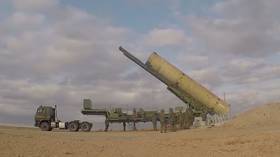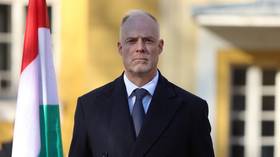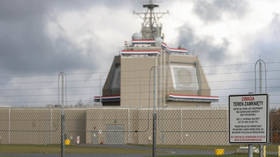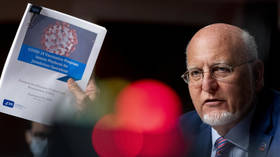New START treaty with US officially extended until February 2026 as Moscow hopes for new chapter in global stability

The extension of the New START nuclear arms reduction agreement with the US will go into effect today, Moscow has announced, praising the deal as a step in the right direction for international stability.
The Russian Foreign Ministry said in a statement that the treaty was formally signed without any amendments or additions, in effect preserving the arms control accord as it currently exists until February 5, 2026.
The Ministry hailed the diplomatic breakthrough as a “cornerstone of international security” and expressed hope that it would “leave behind the trend towards dismantling of arms control and nonproliferation mechanisms,” which have become prevalent during years of “destructive” US policies.
Last week, Russian President Vladimir Putin signed a bill extending the arms control agreement, after negotiations with US President Joe Biden resulted in a five-year extension of the accord.
The treaty was at risk of expiring after the previous US administration under Donald Trump had refused to prolong it without preconditions that were deemed unacceptable to Moscow.
Implemented in 2011, the New Strategic Arms Reduction Treaty (known as New START) limits the number of nuclear warheads, and their delivery vehicles, that the US and Russia are allowed to possess. The agreement is considered virtually the only remaining arms control agreement between the two nuclear powers.
Also on rt.com After agreeing New START extension, Moscow warns treaty may not last long if US attempts to ‘undermine Russia’s national security’Secretary of State Antony Blinken announced on Wednesday that the United States had signed off on the extension, describing the move as “the first step” toward “restoring US leadership on arms control and nonproliferation.”
In a statement, Blinken said that preserving the New START Treaty makes the US, its allies, and the whole world “safer,” noting that “unconstrained nuclear competition” would endanger people of all nations. He also vowed to pursue similar arms control agreements with China, promising that Washington was committed to “reducing the risks of costly, dangerous arms races.”
The Trump administration proposed a one-year extension to the agreement and demanded that a cap be placed on all nuclear warheads for that period. Moscow said it was willing to meet Washington “halfway” on the proposal, but the US countered by demanding revisions to how the verification regime is carried out. Negotiations stalled but the treaty was salvaged at the last minute, after the new Biden administration made a policy U-turn.
Like this story? Share it with a friend!












